#< meta tag
Explore tagged Tumblr posts
Text
Becoming a Fear Entity Avatar in The Magnus Archives, and Trauma
The characters who become monsters – or avatars – in The Magnus Archives also become something else: traumatised. The Magnus Archives, a horror fiction podcast written by Jonathan “Jonny” Sims tackles nuanced topics such as personality change and addiction due to trauma, as well as the perpetuation of the cycle of violence, through the lens of becoming an avatar.
Personality change is hypothesised to be a symptom of trauma, specifically childhood and complex trauma (Rutkowski et al.) (Taycan and Yildirim). Helen is a formerly human character in The Magnus Archives who gave a statement of her supernatural experience to the Magnus Institute but was taken and transformed into the same monster which took her (Sims, “MAG 47”) (Sims, “MAG 101”). Helen is the character with the most drastic change when she becomes a monster, as even the fact that she was ever Helen is called into question, because of the way the Distortion, the creature that she has turned into, functions. Helen’s transformation into monsterhood is directly paralleled, by the Archivist’s. Both she and the Archivist are afraid or are stated to be afraid of what they are becoming and what them becoming means for their identity.
ARCHIVIST. You’re still wearing her face. HELEN. Not this again. I’m not “wearing” anything, Archivist. I am at least as much ‘Helen Richardson’ as you are the ‘Jonathan Sims’ that first joined this Institute. Things change. People change. It happens. ARCHIVIST. We’re not people, though, are we? Not anymore (Sims, “MAG 131”).
This dialogue is after the Archivist chooses to wake up from a six-month coma by sacrificing his humanity. He is having a difficult time coping with his loss of humanity, as evidenced by this quote. Both Helen and the Archivist use different titles to their actual name, the Distortion instead of Helen and the Archivist instead of Jonathan Sims. The Archivist’s acceptance of his title is directly correlated to his monstrosity, as he begins to call himself “Jonathan Sims, the Archivist” in his introductions to reading statements only after he chooses to become a monster (Sims, “MAG 122”). Additionally, he is called only “the Archivist” in the description of episode 142 – an episode mainly about the Archivist’s growing monstrosity – and throughout season 5, when he is much less human than he was in seasons 1 to 4 (Sims, “MAG 142”). In this quote, the Archivist and Helen use their names as shorthand for their identity, and their identity changing as they became monsters.
DAISY. And of course, for John there’s survivor’s guilt in there too. He thinks he’s not human. Makes him very... self-destructive. MARTIN. Yeah, well, we’ve all had trauma. DAISY. And everyone’s changed (Sims, “MAG 142”).
This dialogue takes place during episode 142, immediately after Martin, a main character and the Archivist’s boyfriend from episode 159 and beyond, takes the statement of one of the Archivist’s victims, a woman named Jess Tirrell who was forced to recount her traumatising supernatural experience to him (Sims, “MAG 142”). The Archivist’s friend and former supernaturally influenced corrupt cop, Daisy, has no idea that the Archivist has been hunting for victims. She is discussing the Archivist’s decision to go to a Norwegian town to stop the potential end of the world due to a ritual planned by a cult based there (Sims, “MAG 142”). Martin is worried about the Archivist and does not understand why he repeatedly puts his life in danger for seemingly no credible reason (Sims, “MAG 142”). Daisy explains that the Archivist is suffering from trauma, survivor’s guilt, and a belief that he is not human, which makes him believe he does not deserve to live (Sims, “MAG 136”) (Sims, “MAG 142”). Due to the context of this episode, Daisy is unknowingly referring to the Archivist’s change into the kind of person who would perpetuate the cycle of violence and harm an innocent bystander at a café. The Archivist’s personality changes due to becoming a fear entity avatar are equated with the personality changes that come from the many traumatising events he has experienced. This is most notable in episode 142, when both Daisy and Martin are commenting on the Archivist’s changes, though Daisy’s perspective is of the Archivist’s guilt and feelings of inhumanity, and Martin’s perspective is of his victimisation of innocent people and repeated, unexplained, self-destructive actions.
�� Many avatars go through a similar change to the Archivist, beginning their journey to become a monster due to a traumatic event or events. For example, Daisy Tonner – a corrupt detective who killed many, both monsters and people, while working for the police – experienced a traumatic event when she was eleven years old, when her friend was influenced by the supernatural and attacked her (Sims, “MAG 82”). This directly led her to becoming an avatar, as her former friend was the first human she killed (Sims, “MAG 82”). This parallels the Archivist’s reasons for working at the Magnus Institute. The Archivist had an encounter with a giant spider monster when he was eight years old that ended up eating his childhood bully (Sims, “MAG 81”). Trauma is linked to becoming an avatar, connecting to the hypothesis that victims are likely to become victimisers, also known as the cycle of violence. The Magnus Archives also tackles the abuse of power, and how this relates to the cycle of violence. In season 5, the Archivist gains significantly more power over other avatars, and uses this power to kill the avatars who hurt him in previous seasons. At first, Martin encourages this, seeing the Archivist killing avatars as a righteous quest for vengeance, however in episode 174, the Archivist decides not to kill an avatar, who, notably, had not hurt the Archivist, but had hurt Martin (Sims, “MAG 166”) (Sims, “MAG 174”).
ARCHIVIST. I just— This whole... avenging angel thing, I, I'm not… It doesn't feel right. MARTIN. (With a humourless laugh) It seemed to feel right when we were avenging all the wrongs done against you. ARCHIVIST. I-I know. I, I, I know, alright? But well ah—That's kind of the problem; I-I have all this power, and, and I, I want to use it totry to help, but I — (under breath) I don't know — (normal) I mean, I do. (emotional) I-I've done so much damage, and- and anything that might help to balance that is— (composed) But killing other avatars is, is not— I, I don't think it makes anything better. I think it just makes me worse (Sims, “MAG 174”).
This quote is from a conversation between Martin and the Archivist. Martin asks the Archivist to kill Simon Fairchild, an avatar who threatened to throw Martin off a rollercoaster. The Archivist feels guilty over his role in perpetuating the suffering of billions of people and wants to make it up as best he can, however he recognises that making more people suffer is not fixing the situation. Martin is angry as well, and he too is perpetuating the cycle of violence by encouraging the Archivist to take revenge on both the Archivist’s and his victimisers. The Archivist’s acknowledgement of the fact that killing other avatars is repeated back to him in episode 194, where Martin corelates the Archivist’s satisfaction in seeing his victimisers suffer with the desire that the supernatural entity that made him into an avatar, The Eye, gives him to replace the main antagonist of The Magnus Archives in the Panopticon, which would grant him immeasurable power (Sims, “MAG 194”).
MARTIN. I know what it’s like to be powerless. A-and I know you do too. And I also know what it’s like once you get a taste of— wh-when you’re finally able to— ARCHIVIST. That’s not what this is! MARTIN. I’ve been out there with you. I saw the kick you got out of making them scream for once. ARCHIVIST. (Snarky) What happened to “Kill Bill”? MARTIN. You weren’t meant to enjoy it this much! ARCHIVIST. Why won’t you believe me when I say that this isn’t something I want to do? MARTIN. Because I saw your face when we walked into that room! (Despondent) That wasn’t fear, it, it wasn’t even anger. It was envy. And it scared me more than anything else I’ve seen (Sims, “MAG 194”).
This quote takes place during an argument between the Archivist and Martin. The Archivist believes that right course of action is to take his place in the Panopticon and try to make the world fairer to the billions of people he trapped in eternal torment. Martin believes that this desire is borne out of the Archivist’s self-sacrificial, and oftentimes suicidal, tendencies, in addition to his feeling of empowerment when those who have victimised him suffer at his hand. During season 5, the Archivist perpetuates the cycle of violence, due to desires that originate from trauma, and desires that originate from the supernatural entity influencing his mind. These desires are often equated, and it is unknown where one begins and the other ends. This is especially apparent in episode 174 and 194, where both the Archivist and Martin recognise that his revenge on other avatars and desire to take his place in the Panopticon is borne of a desire not to feel powerless or guilty, emotions often seen in trauma survivors.
The Magnus Archives is influenced by the writer, Jonny Sims’, personal experiences and fears regarding addiction (@jonnywaistcoat). This is apparent in the Archivist’s hunger for statements and its in-text parallels to addiction (Sims, “MAG 107”). The Archivist experiences both supernatural and mundane addiction, relapsing in his smoking addiction in episode 80, and struggling with his addiction to statements in season 3 and 4 (Sims, “MAG 80”).
GEORGIE. So, what? You were just packing this away? ARCHIVIST. Georgie, I just, I needed to do one more. GEORGIE. I asked you not to record them here. ARCHIVIST. I’m sorry, I… I honestly forgot. It’s been a hell of a week (Sims, “MAG 93”).
This quote is from episode 93, where the Archivist and his friend, Georgie, have a confrontation regarding the Archivist’s self-destructive habits and recording statements in Georgie’s home when she asked him not to. Their conversation has parallels to a conversation regarding addiction, with the Archivist stating he “needed” to read one more statement. Self-destructive behaviours, such as risk-taking and substance abuse, are common in trauma survivors and are symptoms of PTSD. Here, the Archivist’s compulsion to record statements is directly related to the traumatising events of the past week and are implicitly connected to addiction. This becomes more explicit in season 4, particularly in episode 147.
So, I thought perhaps I should leave a little something to reassure you that, yes, your actions and your choices have all been your own. Have they been controlled? No more than gravity controls you when you walk, or hunger controls you when you choose your meal. There are certainly new forces, new instincts and desires that influence you and shape your actions. Perhaps you’re unprepared for them, but if you choose to believe in free will, then yes, all you have done has been of your own free will. They have all been your choices (Sims, “MAG 147”).
This quote is from Annabelle Cane, an avatar, in a statement, regarding the Archivist taking statements from innocent bystanders. In this quote, she compares the Archivist’s dependency on statements to a hunger, however it can and has been compared to an addiction due to the Archivist’s compulsion to take statements, and how it feels like it’s out of his control. In her statement, Annabelle states that “addiction is one of the strongest vectors of control there is” (Sims, “MAG 147”). A common stigma around addiction is that it is a choice or a moral failing, and a common result of that stigma is hiding one’s addiction and being afraid to get help (Canada). This is what the Archivist experiences throughout season 4, as he is repeatedly blamed for his choice made under duress to become an avatar, and once his addiction to statements is found out, he blamed and threatened for that as well. The Archivist’s addiction to statements is paralleled to real life ones, in how it affects the Archivist, how the Archivist and those around him view it and how it affects his morality, and its formation because of an experience that can be equated to a traumatic one.
The Magnus Archives uses the process of becoming an avatar as an allegory for trauma and its effects. It highlights this in many ways, such as personality change because of trauma being compared to the loss of humanity that comes with being a fear entity avatar; the Archivist’s revenge on avatars who hurt him in the past as a way he perpetuates the cycle of violence; and the comparisons between mundane and supernatural addictions, both in how they directly affect the Archivist and his actions, and in how the stigma around it causes him to hide it.
Works Cited
Canada. Health Canada. “Stigma around drug use.” Canada, 2 May 2023, canada.ca/en/health-canada/services/opioids/stigma.html. Accessed 19 June 2023.
@jonnywaistcoat. “Just to say, this episode of Magnus is a lot, so please read the content warnings. A few people have asked, so I'll say that this episode mainly comes from my own experiences with addiction and the fears I associate with it and, like all of season 5, it is about fear, not truth.” Twitter, 18 June 2020, 12:38 p.m., twitter.com/jonnywaistcoat/status/1273656411025784832. Internet Archive, 7 November 2020, web.archive.org/web/20201107031909/https://twitter.com/jonnywaistcoat/status/1273656411025784832. Accessed 19 June 2023.
Rutkowski, Krzysztof, et al. "Effect of trauma onset on personality traits of politically persecuted victims." BMC Psychiatry, vol. 16, no. 149, 17 May 2016. Gale OneFile: Psychology, link.gale.com/apps/doc/A452641704/PPPC?u=ko_k12hs_d73&sid=bookmark-PPPC&xid=a8229ab3. Accessed 13 June 2023.
Sims, Jonathan. “MAG 47 – The New Door.” The Magnus Archives, Episode 47, Rusty Quill, 12 January 2017, play.acast.com/s/themagnusarchives/mag-47-the-new-door. Accessed 13 June 2023.
Sims, Jonathan. “MAG 80 – The Librarian.” The Magnus Archives, Episode 80, Rusty Quill, 31 August 2017, play.acast.com/s/themagnusarchives/mag80-thelibrarian. Accessed 19 June 2023.
Sims, Jonathan. “MAG 81 – A Guest for Mr. Spider.” The Magnus Archives, Episode 81, Rusty Quill, 23 November 2017, play.acast.com/s/themagnusarchives/mag81-aguestformr.spider. Accessed 19 June 2023.
Sims, Jonathan. “MAG 82 – The Eyewitnesses.” The Magnus Archives, Episode 82, Rusty Quill, 30 November 2017, play.acast.com/s/themagnusarchives/mag82-theeyewitnesses. Accessed 19 June 2023.
Sims, Jonathan. “MAG 101 – Another Twist.” The Magnus Archives, Episode 101, Rusty Quill, 17 May 2018, play.acast.com/s/themagnusarchives/mag101-anothertwist. Accessed 13 June 2023.
Sims, Jonathan. “MAG 107 – Third Degree.” The Magnus Archives, Episode 107, Rusty Quill, 28 June 2018, play.acast.com/s/themagnusarchives/mag107-thirddegree. Accessed 19 June 2023.
Sims, Jonathan. “MAG 122 – Zombie.” The Magnus Archives, Episode 122, Rusty Quill, 17 January 2019, play.acast.com/s/themagnusarchives/mag122-zombie. Accessed 14 June 2023.
Sims, Jonathan. “MAG 131 – Flesh.” The Magnus Archives, Episode 131, Rusty Quill, 21 March 2019, play.acast.com/s/themagnusarchives/mag131-flesh. Accessed 14 June 2023.
Sims, Jonathan. “MAG 136 – The Puppeteer.” The Magnus Archives, Episode 136, Rusty Quill, 25 April 2019, play.acast.com/s/themagnusarchives/mag136thepuppetter. Accessed 15 June 2023.
#tma#tma meta#the magnus archives#the magnus archives meta#jonathan sims#helen distortion#landscaping your mind chapter one#landscaping your mind is garbage and here’s why#< meta tag
73 notes
·
View notes
Text
Far worse, in my opinion, than the famous “he wouldn’t fucking say that” is “he WOULD fucking say that, as part of his facade, but you seem to think he would mean it genuinely”
56K notes
·
View notes
Text
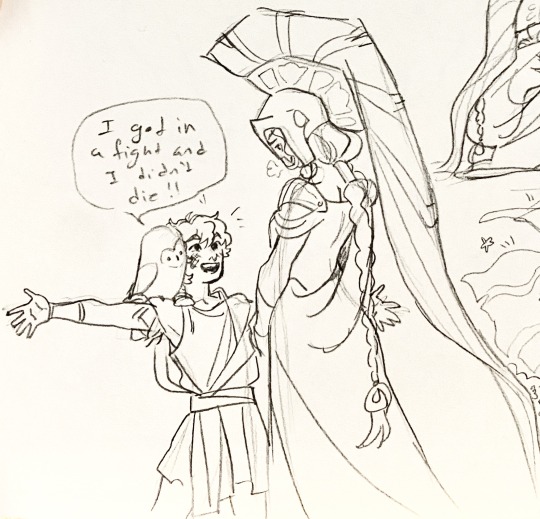
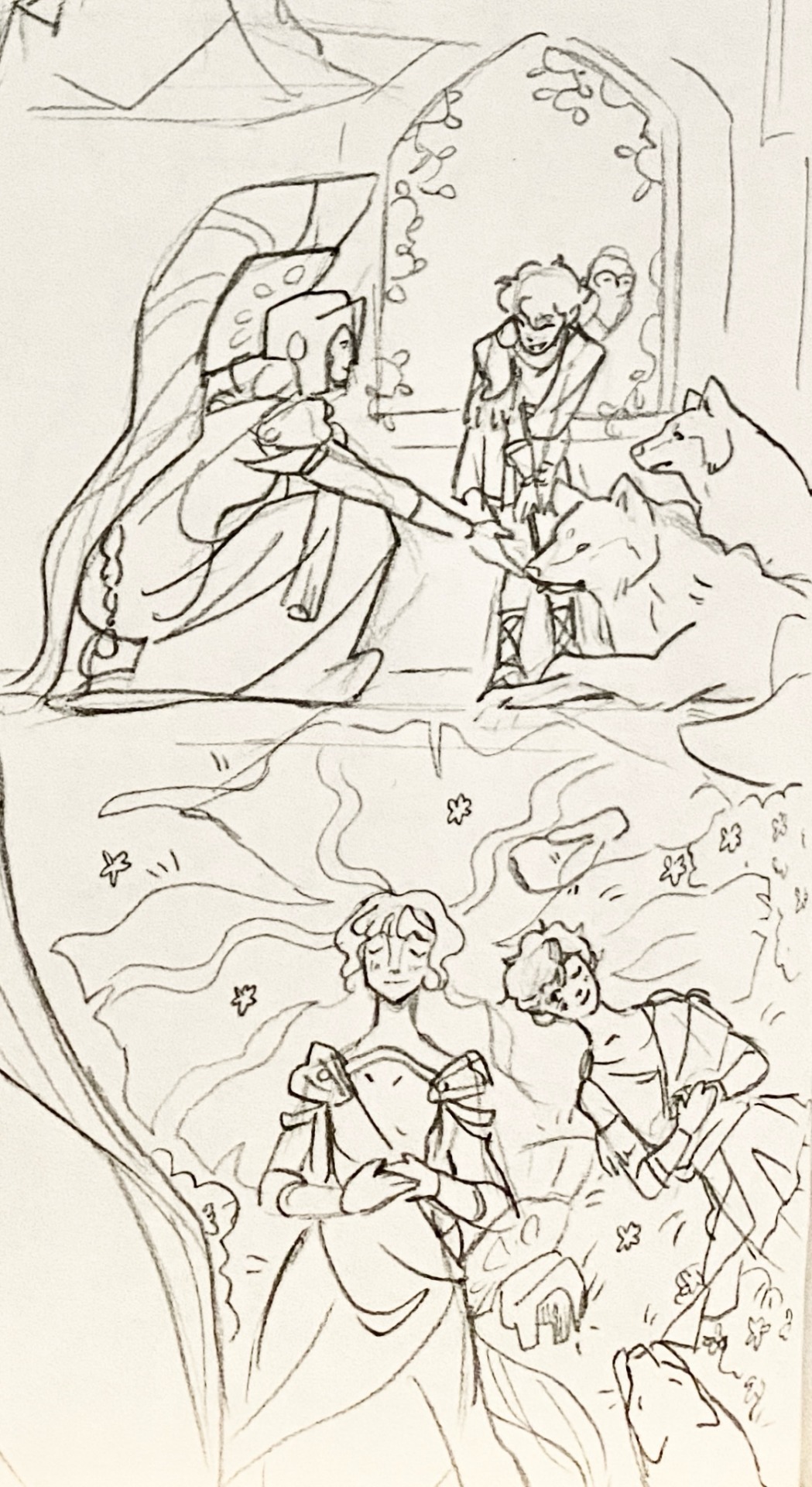
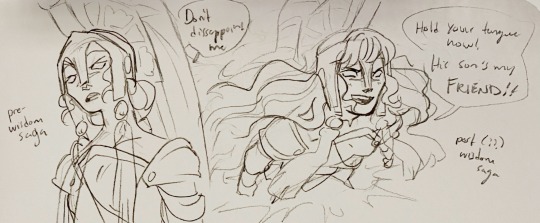
Personally I think that Telemachus permanently and irreversibly changed Athena for the better, more on that at twelve
#I’m sorry for the WORST possible quality pictures and sketches#but they’re fr all I can think about#wisdom saga is where I live now#epic athena#epic telemachus#epic the wisdom saga#epic the musical#epic the musical fanart#sorry to do meta in the tags bug#I think the idea that telemachus’s friendship might have turned Athena into the person she got upset with Odysseus for being#would be delicious#also if you see any inconsistencies in character design or clothes no you didn’t#can’t wait to be able to digital again holy fuck
13K notes
·
View notes
Text

nothing personal but this kind of comment rlly exemplifies to me a disconnect between canon and popular fanon jmart characterization because they almost literally had this conversation in canon - except, their lines are swapped!


jon, for all his scared grouchiness, is a secret romantic, while martin, for all his forced optimism, is at his core a pragmatist
#and it's not like it's a throw away line either#its the penultimate episode and leads directly into the 'Where you go I go - that's the deal' convo#and this isnt the first time I've seen people swap them#otherwise i wouldn'tve made a whole post#tma#tma s5#tma finale#jonmartin#tma meta#stole the screenshot from another post because i didnt want to derail what people are mostly reblogging for a cute moment#and y know. it IS cute. that's why it's so weird that people seem to forget how it's nearly literally canon#EDIT: added that tag to the body of the post cause its rlly the conclusion
9K notes
·
View notes
Text
tragedy enjoyers when a character perpetuates the cycle of violence they themselves were a victim of

#SORRY IT'S COMPELLING LOL#i was gonna write up a meta post abt astarion but im only in act 1 & havent got as firm a grasp on his character as id like to do that yet#one day soon mayhaps...#len speaks#len's memes#astarion#<-tagging my current blorbo du jour bc he's the reason this post exists
57K notes
·
View notes
Note
isnt it wild how jayce is the most heavily misunderstood arcane character..everytime i see takes about him being upper-class and rich or mean and condescending or not caring about viktor in s1 or whatever other garbage ppl say about him i lose a year of my life
It's crazy to me that I've been saying jayce is working class for years and this got confirmed in the draft 1 board for arcane christian linke posted on twitter sometime ago lol

house Talis is a MINOR HOUSE of toolmakers whose most prominent contribution is the 'collapsible pocket wrench'. They're literally blacksmiths. This is a service and labor position. Jayce can't even afford to use gold in his inventions in act1 because he relies on the Kiramman money for everything. This is not the life of a rich guy in Piltover this is middle class at best lol his drive to finish up hextech and succeed academically is him trying to build a better life for himself!

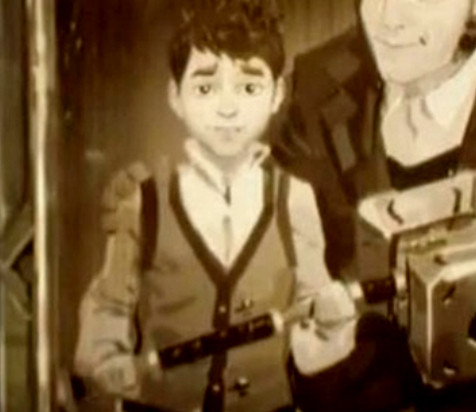
Blacksmithing is historically a very intensive work position. The work wears you down & eventually disables you very early in life (jayce's injury in act3 seems to be a metaphorical speedrun of that, in some ways) we're never told how jayce's dad died but it is very fair to imagine it was a work related. he's fucking aware of this, its true In Real Life and it brings such an interesting context to his interactions with Viktor and how they want to create things that help common laborers and make the work better if it wasn't for the council. (in s1 act2 their progress day showcase to heimerdinger BEGINS with jayce complaining that they've been stuck fulfilling the council's demands these past 10 years and now, finally, *finally* it's their time to decide what to do with hextech. and they're not even allowed that.)
Also, the perfected hexgems in s1 are kept in Kiramman-crest boxes. I noticed this just the other day. JAYCE AND VIKTOR DON'T OWN SHITTTTTTTTTTT they're getting exploited big time while all that 'investor' money is charged back with deep dividends

just like real life academics they probably spent most of their life writing up grant proposals like dogs and begging for funding that will wring them dry later on. Where the hell is all my jayce and viktor class solidarity 'getting drunk off their mugs and complaining about their dipshit bosses' content?
[related post]
#jayvik#arcane#meta tag#jayce talis#viktor arcane#jayce arcane#vikjayce#viktor lol#jayce lol#viktor league of legends#jayce league of legends#league of legends#hexposts
5K notes
·
View notes
Text
inconsolable over irving in this episode. no nuance here, irving is straight up suicidal in this episode. essentially placing him in the same circumstances in which mark chose to become severed - suffering unimaginable heartbreak and seeing switching his brain off as the only viable option for coping with it - and giving him that same choice at surface level to be relieved of it - except it's NOT the same at all, because innies don't get to compartmentalise, they ARE the compartmentalisation, if they choose to switch themselves off, they DIE. the illusion of choice here. irving can either suffer mindless torture of monotony every day with the knowledge that the man he loves is dead and never coming back, or he can fucking DIE. and he genuinely sees that as a viable option. as his only way out of this pain. because even if he did make it out, if he somehow against all odds gained his freedom in the outside world, he'd still have nothing. burt would not be waiting for him.
"I should be happy he's happy" and the way he doesn't even feel entitled to his grief?? like he has no right to be feeling the pain he's feeling right now? innie indoctrination goes so hard he's incapable of seeing that the very fact he's grieving innie burt, a hypothetical life they could have had together, is proof that he's just as real as his outie counterpart! he has just as much right to that life as anyone! like, NO, irv! you have been wronged, you have been so deeply wronged, they made you capable of feeling these things and forming this relationship and falling in love and then systematically removed every tool you could have had to pursue it, and then effectively handed you a length of rope and made you feel like the only empowerment you can find is in the act of hanging yourself with it.
"if he's gone and I'm gone, then somehow, we'll be together" broke me because he really has been so beaten down by this point at the hopelessness of it all, realising that there is no scenario in which he can be with the man he loves, that his only hope at finding any triumph or meaning in this is to die along with burt. at least in chasing him into oblivion, he will have made the one choice he could have to follow his heart. and that as a queer-centric narrative specifically is actually devastating.
SUCH an insane and heavy thing to come straight out of the gate with in the season premier. immediately cementing irving as one of the most masterfully complex characters I've ever seen - i can only hope his arc this season is in finding strength in the act of defiance at last and making good on his promise to burn lumon to the ground for what they've put him through. to carry that grief and channel it into bringing the system that has wronged you down. I believe in the power of queer rage and vengeance!!!!
#the last time i cried this hard. or felt any emotions of this magnitude. was bill and frank#two ends of the old man yaoi spectrum in terms of getting a happy ending. god.#i want him to go sicko mode. god he deserves it. he deserves it more than anyone#yaoi jesus for fucking real. he should do some crucifying of his own#severance#severance spoilers#severance season 2#irving bailiff#meta tag#wails from the abyss
3K notes
·
View notes
Text
Shipping is fun and all but I swear every single time someone makes a comment, whether as a joke or in a legitimate analysis, about there being "no other explanation" for a pair's interactions, I lose just a bit more of my sanity
Like, no, you guys don't get it. Romance is not about the Amount of devotion, it's about the COLOR. the FLAVOR of it all. a character can be just as devoted to their platonic friend as they are to their romantic partner, and they don't love either of them more, just differently.
But because the majority of people still have it stuck in their minds that romance exists on the highest tier of love, I'm stuck seeing endless takes that boil down to "these two care about each other too much for it to NOT be romantic" as if that's the core determining factor to how literally any of this works
In conclusion: stop telling me that I don't understand the story if I don't interpret the leads as romantic, I am TIRED
#analysis#meta#miscellaneous#fandom#shipping#media discussion#amatonormativity#lgbtq#I feel like tagging any of the fandoms I was thinking of when writing this would be a little mean-spirited potentially#Disclaimer: no one has actually been telling me personally that I don't understand any story in particular#It's just that the way people tend to phrase their analyses feels unnecessarily targeted at the reader and that's just. not great#even if I agree with every other point they make
25K notes
·
View notes
Text
while i did a gifset to showcase an armour set, i was also intrigued by just how different the animation is for the wizard class vs gale's unique animation:
wizard class animation

gale's unique animation
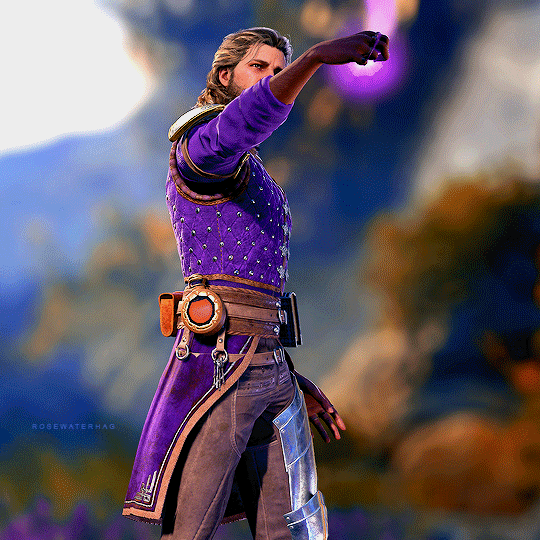
it's amazing to see not only just how quickly gale performs the somatic component of the spell, but also his efficiency of movement compared to the standard wizard animation.
there's a world of difference here, the difference between a wizard vs a prodigy, an archwizard and chosen.
#gale dekarios#gale of waterdeep#baldur's gate 3#bg3#baldurs gate 3#ch: gale dekarios#vg: baldur's gate 3#series: baldur's gate#meta: mybg3#i saw someone say in the tags once that faerun can be happy that gale is kind and good-hearted and not v much like the typical(tm) wizard#in dnd#and yeah.................................
6K notes
·
View notes
Text
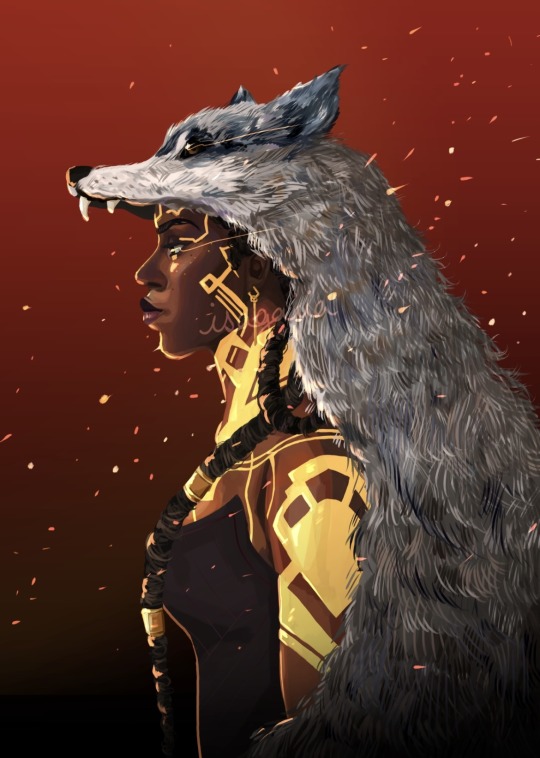
you are the wolf
#funny bc when I was drawing this my mom was like is that a wolf or a fox on her head and I was like... that's so meta you dont even know#hate how I ended up doing her armour but we move!#mel medarda#arcane#arcane fanart#mel arcane#mel medarda fanart#artists on tumblr#fanart#isagaiia#my art#digital art#csp#my art 2024#I hope everyone finding that j4yvik one finds this but alas#sorry didn't realise that last tag would put it in the j$yvik tag apologies!!!!!#arcane spoilers#arcane season 2
3K notes
·
View notes
Text
Yeah okay so like I said in the tags of the last post I’m rising from my tumblr grave to say that the ban on TikTok is symptomatic of a MUCH larger and more terrifying problem. Because yes, on its surface it’s silly dances and asmr and cooking videos and whatever, but in truth and at its core, TikTok single-handedly revolutionized the way 170 million Americans communicated with each other AND the rest of the world. Non-Americans love to point out how America-centric Americans are, but fail to realize that we are purposefully raised in an isolated, insulated environment where we are told from basically day 1 that America Is The Best and not to even bother taking a look around because it’s all downhill from outside of here. TikTok has, for MANY Americans, single-handedly destroyed that notion and allowed them (us!!) to broaden our world-view and realize that actually, things are better in other countries, and it did so in a kind, empathetic, and compassionate way.
And yeah most people wake up to the truth of that on their own as they get older, but holy shit!! The VAST majority of the Americans on TikTok are millennials and gen z (and even some older gen alpha)!! People who are becoming disillusioned with “The American Dream” (said with the HEAVIEST sarcasm) while they’re still school-aged or are just entering young-adulthood!! People who are entering - or TRYING to enter - the American workforce who suddenly have an unfiltered window into non-American lives and are wondering why tf we’re struggling and penny-pinching and toeing the line of poverty while our rich elected officials sit around and fight and argue over everything that actually matters to the citizens they supposedly represent and get richer all the while. THAT is why they’re banning the app, and that fact alone should terrify every single American citizen.
Not to mention the precedent it sets for other social media platforms!! You think some nebulous, unproven, and unfounded “threat to national security” will stop with TikTok?? They’ve already censored Adult Material on tumblr, who’s gonna stop them from coming back and doing it again or getting rid of it altogether for the exact same reason? It’s a blatant act of censorship and a direct attack on the American first amendment right to free speech.
NOTHING radicalized me the way tiktok did. I watched people in my life who were STAUNCH Trump supporters in 2016 AND 2020 wake up to the truth and vote blue for the first time in their lives BECAUSE OF TIKTOK, and did so with al the nuanced understanding that even Democrats are severely failing this country, but are at least better than the alternative. That level of awareness and presence in the average US citizen scares American politicians.
The fact that the vast majority of them - including the ones loudly opposing the ban!! - bought stock in Meta BEFORE the ban was legalized/upheld by the Supreme Court?? That Mark Zuckerberg and Elon Musk were legally allowed to lobby congress to ban TikTok when BOTH stood to DIRECTLY financially gain from their biggest competitor being banned in the US and are guilty of unethically gathering data and selling it to MULTIPLE third parties?? The fact that Trump is now teasing that he may or may not intervene to save TikTok when he was the one who talked about banning it in the first place AND ALSO OWNS HIS OWN COMPETING SOCIAL MEDIA PLATFORM??
It’s the burning of Alexandria. It’s the loss of a significant chunk of culture. It’s the sharp and sudden loss of contact with the rest of the world for more than half of all American citizens. It’s the loss of $240 BILLION dollars in the GDP when the country is already TRILLIONS of dollars in debt. And on an individualistic level, it’s the loss of millions of small businesses and primary income streams for so many individuals and families who found their primary audience on TikTok. Is the app perfect? HELL no. Are there significant changes needed to make it a safe environment for all users? ABSOLUTELY. But that can also be said of ANY social media platform. TikTok openly fostered connection and communication and creativity and compassion that is completely unique to that platform! It made so many people - myself included!! - feel less alone. I get the feeling I know what the general consensus is about TikTok on this site, but the ban on this app should scare the shit out of everyone.
#TikTok ban#TikTok#mark zuckerberg#elon musk#donald trump#I’ve been gone for like 3 years at this point but I can’t say quiet about this#and as this is the only sort-of platform I’ve got#if you want to do something to help#delete ALL meta apps off your phone#not your accounts just the apps themselves#Facebook#Instagram#facebook messenger#WhatsApp#all of them#this + the fact that I traveled outside the US for the first time in my life last year has really fundamentally changed who I am#I’m just honestly so infuriated#as are most people on TikTok#anyway back to tagging senators ro khana and ed markey in every tiktok I scroll past byeeeeeee
3K notes
·
View notes
Text
i'm expecting a tiktok exodus since this seems to be the bomb shelter of the internet. have another update/repost. NOW WITH HIGHLIGHTED MAJOR HOLIDAYS!
IT JUST HAPPENS
DAY 15 GIVE IT UP FOR DAY 15
Thursday the 20th
The Fifth of Wednesday
Second Week of May: Eurovision
Sometime in June: That One Halloween Post Starts Circulating
Sometime in July: Dancing Pumpkin Man Video/Gif
First Monday In September: Todaybor Day Is Labor Day
WEEKLY EVENTS (at least the ones i celebrate)
Every Monday: Garfield Hates Mondays
Every Tuesday: Tuck Him In Tuesday
Every Wednesday: It Is Wednesday My Dudes
Every Thursday: Out of Touch Thursday
Every Friday: Thank Gnome It's Friday
Every Saturday: Caturday
Every Sunday: Energy Sword Sunday
YEARLY EVENTS
January 1: Copyright Expiration Day
January 2: New Years, New Tears
January 8: Spiders Georg Day
January 16: Appreciate a Dragon Day
January 18: Bug Race
January 29: Threshold Day
All of February: Funguary
ALSO All of February: Femslash February
February 3: WOE, VANILLA EXTRACT BE UPON YE
February 8: King Taejong Fell Off His Horse
February 13: Galentines Day
February 14: Aromantic/Asexual Day
February 15: Annoy Squidward Day
February 18: Perserverance Rover's Birthday
March 9: Miku Day
March 10: Mario Day
March 14: Pi Day
March 15: Ides of March
March 23: Ever Given Got Stuck Today
April 1: Mishapocalypse
ALSO April 1: Staff Does Something Fun On The Dashboard
April 2: Dashcon Announcement Anniversary
April 3: Dannypocalypse
April 5: First Contact Day
April 8: Rex Manning Day
ALSO April 8: MARGARET THATCHER IS DEAD
April 13: Neil Banging Out The Tunes
ALSO April 13: Homestuck Day
April 19: Some Roman Made Bread Today
April 20: haha 420 blaze it
April 24: Josh Fight
April 25: The Perfect Date
April 28: Ed Balls Day
April 29: 94 Meetings Day
April 30: It's Gonna Be May
All of May: Mermay
May 3: Beginning of Dracula Daily
May 4: May the 4th Be With You
May 5: Revenge of the Fifth
May 6: Revenge Of The Sixth
May 7: World Language Day
May 25: The Glorious 25th of May
ALSO May 25: Towel Day
All of June: Pride Month
ALSO All of June: IT'S HALLOWEEN TIME TO GET SPOOKY
June 5: Barricade Day
ALSO June 5: RONALD REAGAN IS DEAD
June 12: Another Homestuck Day
June 16: Let Papyrus Say Fuck
June 22: Summerween
June 23: FUCK This Post And Happy Birthday Sonic
All of July: Disability Pride Month
July 11-13: Dashcon Anniversary
July 20: Moon Landing
August 5: Curiosity Rover's Birthday
August 30: Frankenstein Day
September 8: The Queen Is Dead and Sans Undertale Killed Her
September 11: Mole Interest Monday
September 19: Talk Like A Pirate Day
September 21: DO YOU REMEMBER-
All of October: SKELETON WAR
ALSO All of October: People Draw A Lot Month? (so many names)
October 3: Mean Girls Day
ALSO October 3: Fullmetal Alchemist Day
October 13: Treat Yo' Self
October 18: None Pizza Left Beef
October 20: Unnecessary Feelings Day
October 25: Homestuck Day The Third??
October 31: HALLOWEEN
November 5: Destiel Nevada Putin Elec'tion Covid Way
ALSO November 5: Doc Brown Invents Time Travel
November 19: Goncharov
November 29: HENRY KISSINGER IS DEAD
All of December: Will the Gävle Goat Get Destroyed Again?
ALSO All of December: WHY WEREN'T YOU AT ELF PRACTICE
ALSO All of December: Season's Greason's
December 4: Deny Defend Depose Day
December 10: Please, It's Christmas
December 12: Hawaii Part 2
December 23: Christmas Adam
ALSO December 23: Festivus
December 24: ALMOST CHRISTMAS MEANS IT WASN'T CHRISTMAS
ALSO December 24: Cabinet Man Day
December 25: happy chrismum
December 27: Porn Ban Effective Today
#there's definitely more but i'm not versed enough in this#tumblr holidays#add more in the tags/comments please#look i'm trying my best here i've been on tumblr for just over a year at this point#tumblr#tumblr calendar#holidays#calendar#the calendar updates have become a yearly occasion now#if you have other additions get 'em in by next year#also this update finally has some august holidays!!#tiktok ban#tiktok refugees#meta refugees#instagram refugees
32K notes
·
View notes
Text
Genuinely, I think one of the most fun and crunchy things about any character is
How far they will go for things they want
What they will do to get things they want
Things they won't do, no matter how much they want what they'd get in exchange
Because these things tell you some very important things about the character, namely their limits, their price, and their absolute No's. (And it lets you create some really REALLY crunchy conflict)
#a prime example is batman joker and jason todd#which puts all of that into conflict#bc of batman's refusal to kill - even when that would solve the problem#even when it hurts him and his son both in different ways#(to jason: bruce valuing his moral code above jason's life. valuing the joker's life over jason's.#To bruce: if he broke that code he wouldnt be HIM anymore. You see?)#also imo#most villain characters are people who will go far beyond the “average” limits people have#for example#delilah briarwood “breaking the world” for sake of sylas#she didn't care about anyone BUT her husband#extreme tunnel focus#tag meta#writing things#fic things
2K notes
·
View notes
Text
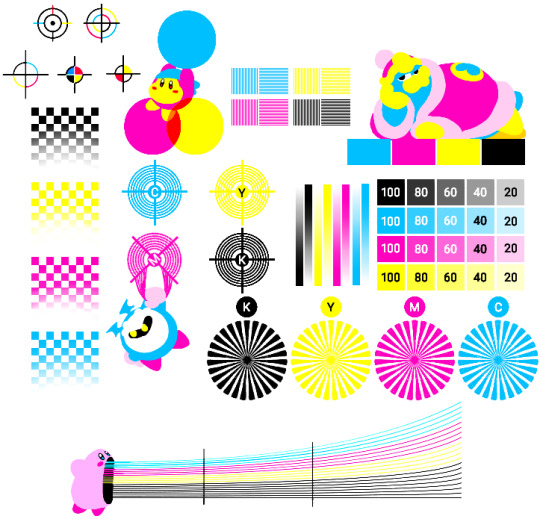
kirby test print
3K notes
·
View notes
Text
The Sanitized Lore of Dragon Age: The Veilguard
Tevinter is the heart of slavery in Thedas. This lore has been established in every game, novel, comic, and other extended material in the Dragon Age franchise to date that so much as mentions the nation. But in Dragon Age: The Veilguard, when we are finally able to actually visit this location for the first time… this rampant slavery we’ve heard so much about is nowhere to be found. It’s talked about here and there; Neve mentions The Viper has a history of freeing slaves, as does Rook themselves if they choose the Shadow Dragon faction as their origin, for example. But walking down the streets of Minrathous, you’d never know. Because Dragon Age: The Veilguard, for all its enjoyment otherwise, has one glaring issue: It’s too clean.
The world of Thedas is full of injustices. Humans persecute elves, fear qunari, and belittle dwarves. Mages of any race are treated like caged animals in most places. The nobility is corrupt. Although, Dragon Age has not always handled these injustices well, mind you. Many, many times I’ve found myself frustrated with moments that just feel like a Racism Simulator. But what makes it worth it, is when you can actually do something about it. These injustices are things that a good-aligned character strives to fight back against, maybe even for very personal reasons. Part of the power-fantasy for many minorities is that this fight feels tangible. I cannot arrange the assassination of a corrupt politician in real life, but I sure can get Celene Valmont stabbed to death in Dragon Age: Inquisition, for example. Additionally, these fictional injustices can be used to make statements on real life parallels, like any source of media. For example, no, the Chant of Light is not real, but acting as a stand-in for Catholicism, through a media analysis lens we can explore what the Chant of Light communicates on a figurative level.
When starting Dragon Age: The Veilguard and selecting to play as an elf – this should be unsurprising to anyone who is familiar with my bias towards them – I was fully prepared to enter the streets of Minrathous and immediately get called “knife-ear” or “rabbit”. But this did not happen. I thought perhaps it was just a prologue thing, but returning to Minrathous once again, there was not a single shred of disapproval from any NPC I encountered that wasn’t a generic enemy to fight. And even the generic enemies, the Tevinter Nationalist cult of the Venatori, didn’t seem to care at all that I was a lineage they deemed inferior before now. This is a stark difference from entering the Winter Palace in Dragon Age: Inquisition and immediately getting hit with court disapproval and insults. Are we now to believe that Tevinter has somehow solved its astronomical racism and classism problems in the ten years since the past game? Or perhaps are we to believe all the characters who have demonstrated Tevinter’s systemic discriminatory views were just lying or outliers? Because it makes absolutely no sense at all for this horribly corrupt nation to not have a shred of reactivity to an elven or qunari Rook prancing around. But here were are, and not a single NPC even recognizes my character’s lineage. And because this is so different from every single past game, it feels weird.
As an elf, you have the option to make a comment about how “too many humans look down on us” in one scene early in the game. You can also talk to Bellara and Davrin, the elven companions, about concerns that people won’t trust elves after finding out about the big bad Ancient Evanuris… but this is presented as if elves don’t already face persecution. It’s all so limited in scope that it could be all too easily missed if you are not paying very close attention, and coming into the game with pre-existing lore knowledge.
All this made it easy to first assume that the developers simply over-corrected an attempt to address the Racism Simulator moments. And if that was the case, than I would at least give credit to effort; they did not find the right balance, but they at least tried. However, the sudden lack of discrimination against different lineages in Dragon Age: The Veilguard is not the only sanitized example of lore present.
In Dragon Age: Origins, Zevran Arainai is a companion who is from the Antivan Crows; a group of assassins. He discusses in detail how the Crows buy children and raise them into murder machines through all kinds of torture. The World of Thedas books also describe how the Antivan Crows work, echoing what Zevran says and expanding that of the recruitment, only a select handful of those taken by the Crows even survive. When you start Dragon Age: The Veilguard as an Antivan Crow, you immediately unlock a re-used codex entry from the past, “The Crows and Queen Madrigal”, that says the following:
“His guild has a reputation to uphold. They are ruthless, efficient, and discreet. How would they maintain such notoriety if agents routinely revealed the names of employers with something as "banal" as torture.”
Ruthless, efficient, and discreet. Torture is banal. This is what the Crows were before Dragon Age: The Veilguard decided to take them in a very different direction. The Antivan Crows in this latest game are painted as freedom fighters against the Antaam occupation of Treviso. Teia calls the Crows “patriots”. And while I can certainly believe that the Crows would have enough motivation to fight back against the Antaam, given that it is in direct opposition to their own goals, I cannot understand why they are suddenly suggested to be morally good. They are assassins. They treat their people like tools and murder for money. Even as recent as the Tevinter Nights story Eight Little Talons, it is addressed that the Antivan Crows are in it for the coin and power, with characters like Teia being outliers for wanting to change that. It makes the use of the older codex all the more confusing, as it sets the Antivan Crows up as something they are no longer portrayed as.
I personally think it would have been really interesting to explore a morally corrupt faction in comparison to say, the Shadow Dragons. Perhaps even as a protagonist, address things like the enslavement of “recruits” to make the faction at least somewhat better. (They are still assassins, after all.) Instead, we’re just supposed to ignore everything unsavory about them, I suppose…
We could discuss even further examples. Like how the Lords of Fortune pillage ruins but it’s okay, because they never sell artifacts of cultural importance, supposedly. Or how the only problem with the Templar Order in Tevinter is just the “bad apples” that work with Venatori. I could go on, but I don’t think I have to.
It is because of all this sanitization, that I cannot believe this was simply over-correction on a developmental part. Especially when there is still racism in the game, in other forms. The impression I’m left with feels far deeper than that; it feels corporate. As if a computer ran through the game’s script and got rid of anything with “too much” political substance. The strongest statements are hidden in codex entries, and I almost suspect they had to be snuck in.
Between a Racism Simulator and just ignoring anything bad whatsoever, I believe a balance is achievable; that sweet spot that actually has something to say about what it is presenting. I know it is achievable, because there are a few bright spots of this that I’ve encountered in Dragon Age: The Veilguard too. For example, some of the codex entries like I mentioned, and almost all the content with the Grey Wardens thus far. It is a shame there is not more content on this level.
Dragon Age: The Veilguard is overall still a fun game, in my opinion. But it’s hard to argue that it isn’t missing the grit of its predecessors. The sharp edges have been smoothed. The claws have been removed. The house has been baby-proofed. And for what purpose?
-----
Want to support me writing more essays like this? Become a Patron!
#dragon age#datv#datv critical#datv spoilers#not really but tagging just in case#meta#anti bioware#we're so back
2K notes
·
View notes
Text
Blitz is going to be the death of me.
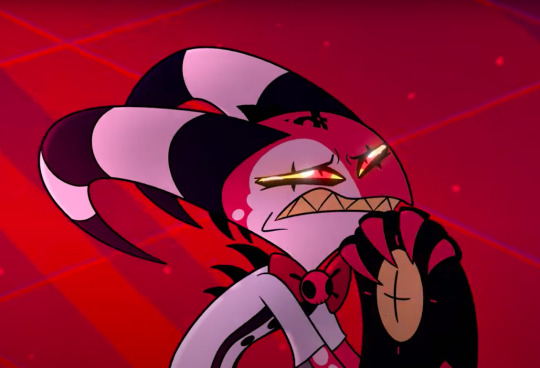
Right before the crystal, when he thinks that Stolas is really breaking up with him, he straight up begs.
"Stolas, please, I need this book. Please."
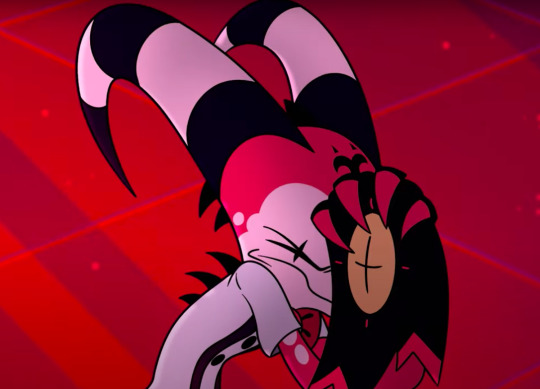
Uh huh the book . . .

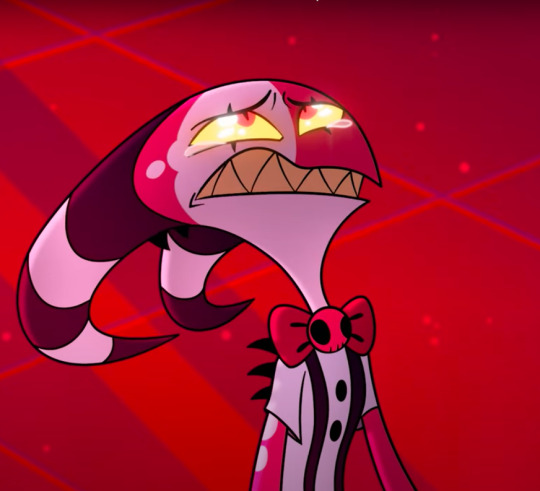
"I need this book, Stolas. I will do anything.
Looking down (maybe telling himself, "I knew this was coming eventually") and then looking up, trying not to cry.
Despite . . . his everything here, I'm pretty scared that half the audience will think this is really about the book, and I'm not ready for the bad takes yet.
#I haven't read ANYTHING yet#and more cohesive meta will come later#just gathering moments for now#full moon spoilers#helluva boss spoilers#full moon#helluva boss#stolitz#blitz#blitzo buckzo#helluva boss full moon#I think I have all the tags#my helluva meta
4K notes
·
View notes